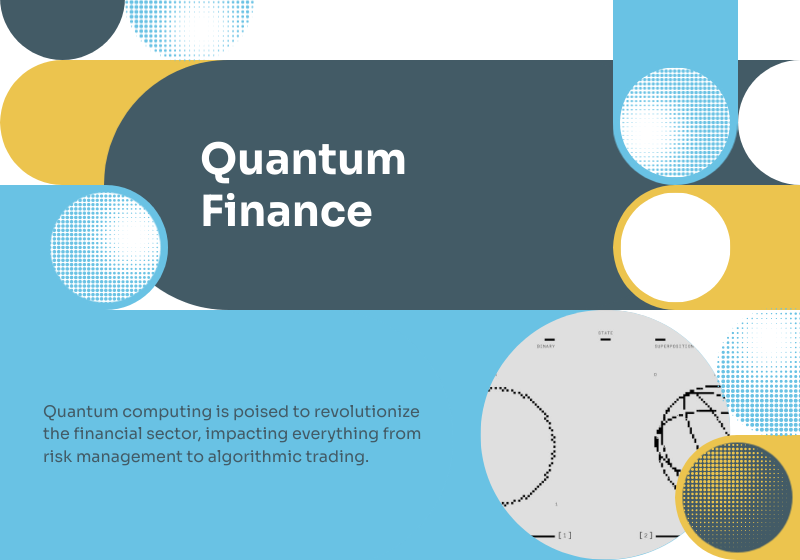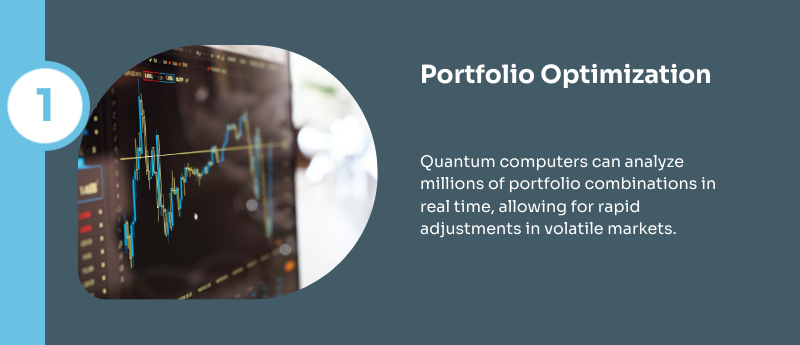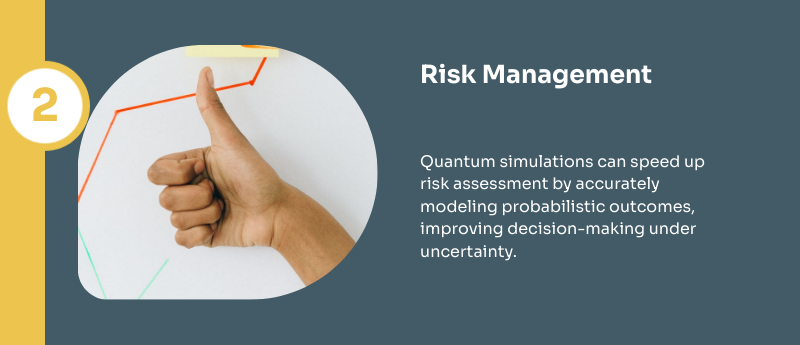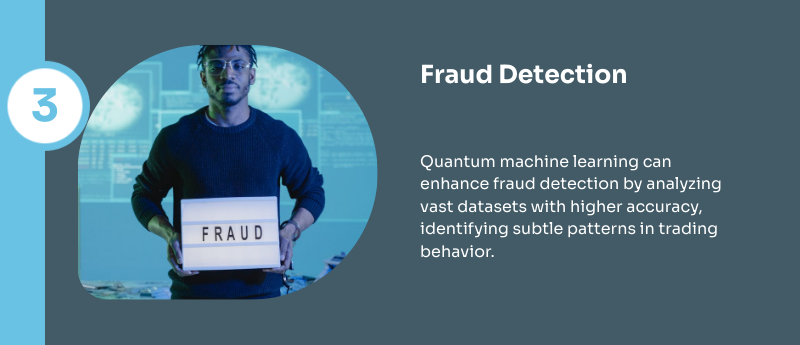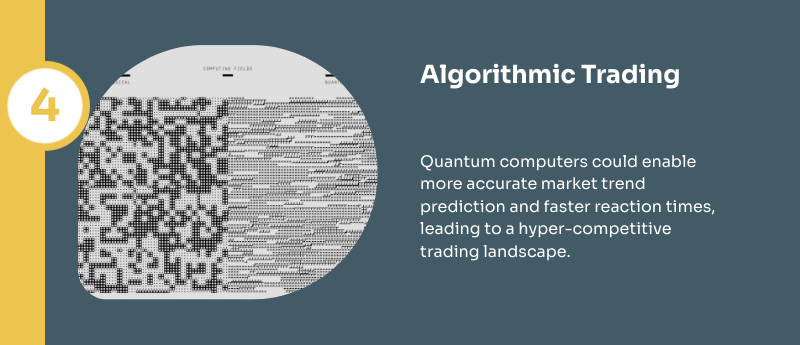Quantum computing is no longer confined to the realm of theoretical physics. With major tech giants like IBM, Google, and Microsoft heavily investing in quantum research, the potential for disruption across various industries is becoming increasingly tangible. Among the most susceptible to this disruption is the financial sector—a space heavily reliant on computation, algorithms, and real-time data analysis.
What Is Quantum Computing?
At its core, quantum computing leverages the principles of quantum mechanics—superposition, entanglement, and quantum tunneling—to process information in fundamentally new ways. Unlike classical computers that use bits (0s and 1s), quantum computers use qubits, which can exist in multiple states simultaneously.
This property allows quantum systems to solve complex problems exponentially faster than their classical counterparts, a potential game-changer for financial modeling, risk assessment, and algorithmic trading.
Quantum vs. Classical Computing in Finance
Traditional finance depends on classical computers for:
- Predictive analytics and simulations
- Portfolio optimization
- Fraud detection
- Real-time risk management
While classical systems can handle these tasks, they struggle with large-scale optimization problems and real-time modeling of chaotic systems like financial markets. Quantum computing promises to address these limitations by:
- Reducing computational time from days to seconds
- Modeling probabilistic outcomes more accurately
- Enhancing cryptographic security (or potentially breaking it)
This shift is analogous to how AI revolutionized marketing automation. Just as businesses optimize internal linking structures for SEO to boost site rankings, financial institutions may soon need to optimize their infrastructure to accommodate quantum workflows.
Key Areas Quantum Could Disrupt in Financial Markets
1. Portfolio Optimization
Portfolio optimization seeks the best mix of assets to maximize returns and minimize risk. But with thousands of assets and market conditions constantly changing, this becomes a combinatorial explosion problem—one that’s well-suited for quantum algorithms like the Quantum Approximate Optimization Algorithm (QAOA).
Quantum systems could evaluate millions of portfolio combinations in real time, allowing hedge funds and asset managers to pivot quickly in volatile markets.
2. Risk Management and Monte Carlo Simulations
Monte Carlo methods—used to model the probability of different outcomes—are vital for pricing derivatives and assessing financial risk. However, they are extremely resource-intensive.
Quantum computers can significantly speed up these simulations using quantum amplitude estimation, reducing the number of required samples and accelerating decision-making under uncertainty.
3. Fraud Detection and Market Surveillance
Quantum machine learning (QML) can enhance fraud detection by analyzing vast, unstructured datasets with higher accuracy. For example:
- Real-time detection of market manipulation patterns
- Enhanced compliance monitoring
- Prediction of anomalous trades
Just as link building strategies rely on identifying trustworthy signals across the web, quantum-enhanced surveillance systems could detect subtle patterns in trading behavior that classical systems might miss.
The Quantum Arms Race: Who’s Leading?
Countries and corporations alike are pouring billions into quantum R&D:
| Entity | Investment Focus | Estimated Investment |
| IBM | Cloud-based quantum computing (Qiskit) | $20B+ |
| Quantum supremacy and error correction | Undisclosed | |
| China | National quantum infrastructure | $15B+ |
| Goldman Sachs | Quantum algorithm development | Collaborative R&D |
| JPMorgan Chase | Risk modeling via quantum simulations | $10B+ partnership |
Financial institutions aren’t just passive observers—they’re active players in the quantum race, building in-house capabilities and partnering with quantum startups to gain a competitive edge.
Quantum Trading: A New Frontier in Algorithmic Strategies
Enhanced Prediction Models
Quantum computing could push algorithmic trading to new heights, allowing firms to:
- Predict market trends more accurately using quantum neural networks
- Analyze sentiment data from social media and news in real time
- React faster than competitors due to reduced latency
This could create a hyper-competitive arms race similar to the high-frequency trading (HFT) boom of the early 2010s, where milliseconds made millions.
Game Theory and Market Dynamics
Quantum game theory introduces new models of strategic interaction between agents. This can revolutionize auction theory, bidding strategies, and options pricing in markets where traditional equilibrium concepts fall short.
Quantum Threats: Cryptography and Security Risks
One of the most alarming implications of quantum computing is its ability to break current encryption standards, particularly RSA and ECC, which secure everything from banking transactions to online passwords.
Quantum algorithms like Shor’s Algorithm can factor large prime numbers exponentially faster than classical algorithms, potentially rendering existing cryptographic systems obsolete.
Implications for Finance:
- Decryption of secure financial data
- Compromised payment systems
- Need for quantum-resistant cryptographic standards
Financial institutions must start integrating post-quantum cryptography into their systems, much like adopting structured internal linking strategies to future-proof SEO against algorithm changes.
Barriers to Adoption in Financial Markets
Despite the hype, several challenges remain:
- Error correction: Qubits are highly error-prone due to decoherence
- Hardware limitations: Current systems lack scalability
- Talent gap: Shortage of quantum developers and domain experts
- Regulatory ambiguity: Lack of global standards for quantum risk management
Adoption will likely mirror how companies gradually embraced technical SEO strategies over time—slow at first, then suddenly critical.
Regulatory and Ethical Considerations
As quantum tools develop, regulatory bodies must evolve. Potential issues include:
- Quantum-enabled insider trading
- Manipulation of financial models
- Disproportionate advantages for early adopters
Agencies like the SEC, BIS, and ECB may need to collaborate with quantum scientists to establish governance frameworks, ensuring fair and ethical integration of this technology into global markets.
How Quantum Computing Could Shift Market Structure
The ripple effects of quantum computing won’t be limited to the institutions that deploy it—they could transform the entire market infrastructure.
Centralized vs. Decentralized Models
Quantum tools could enhance centralized exchanges’ efficiency or support more decentralized finance (DeFi) platforms by offering:
- Secure, quantum-resistant smart contracts
- Near-instant clearing and settlement
- Complex derivative modeling without centralized intermediaries
This evolution would parallel how improved site architecture and internal linking can flatten navigation and boost performance across all pages, redistributing power from a few high-authority nodes to a wider network.
Impact on Liquidity and Volatility
If only a select group of traders can leverage quantum insights milliseconds faster, this could:
- Skew market equilibrium
- Exacerbate flash crashes
- Lead to systemic liquidity imbalances
Regulators may need to introduce “quantum-neutral” policies—similar to circuit breakers—to level the playing field during high-impact trading sessions.
Preparing for the Quantum Shift: Action Plan for Financial Firms
To stay ahead, financial institutions should adopt a quantum-readiness roadmap. Here’s a strategic action plan:
| Action Step | Description |
| Conduct a quantum impact audit | Evaluate which business units will benefit most from quantum applications |
| Invest in quantum literacy | Train staff on quantum fundamentals and partner with academic institutions |
| Experiment through sandboxes | Launch pilot projects in low-risk environments |
| Integrate hybrid models | Combine quantum algorithms with classical infrastructure (quantum annealing + HPC) |
| Adopt quantum-safe encryption | Start transitioning toward post-quantum cryptographic standards |
This approach is similar to adopting a comprehensive content strategy—you need both foundational literacy and tactical experimentation to future-proof your performance.
The Timeline to Disruption
While full-scale disruption may be 10–20 years away, incremental gains will begin shaping financial markets much sooner.
| Milestone | Expected Timeline |
| Quantum advantage (specific) | 3–5 years |
| Scalable, fault-tolerant QC | 5–10 years |
| Mainstream financial adoption | 10–15 years |
| Crypto vulnerabilities | 5–10 years (urgent) |
Much like how SEO fundamentals became mainstream only after Google updated its algorithm multiple times, quantum computing’s rise will likely be slow, then sudden.
Final Thoughts: Disruption or Differentiation?
Quantum computing will undoubtedly shake the foundations of the financial sector. But whether this shift results in disruption or differentiation depends on preparedness.
- Innovators will lead new financial paradigms
- Fast followers will adopt tools as they mature
- Laggards risk obsolescence
Just as companies that ignored on-page SEO were left behind in search rankings, those that fail to embrace quantum computing may find themselves outpaced by more agile competitors.

